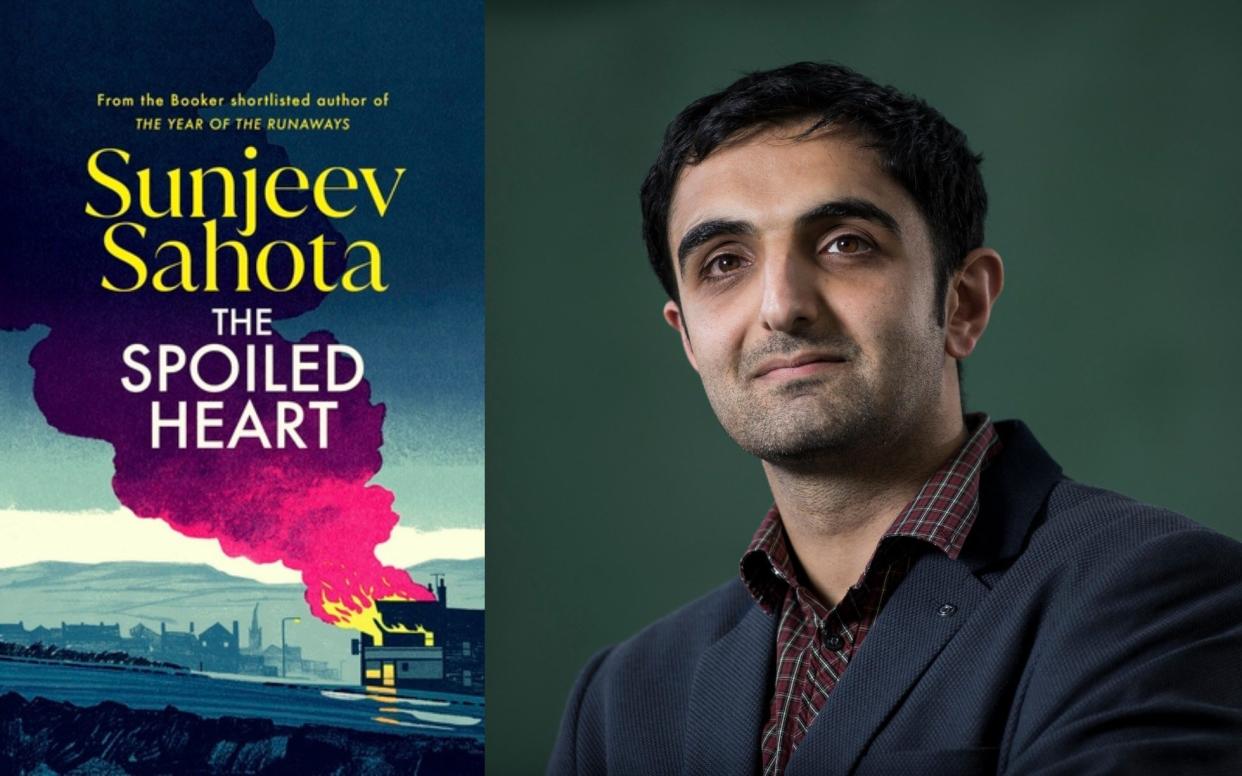This sharp novel exposes the 21st century’s ‘identity swizz’

In the climactic scene of Sunjeev Sahota’s fourth novel, The Spoiled Heart, there’s a ferocious argument. Nayan, a leading figure in a Midlands trade union, is facing down his political rival, Megha. The difference between them, Nayan asserts, is that whereas Megha pursues a race-based politics – she defines the interests of workers by their backgrounds – Nayan thinks that such views are an “identity swizz”, and that “class should not be raced”. Sahota, the son of Punjabi immigrant shopkeepers, summarised this stance himself, and more punchily, in a recent interview: “Rishi Sunak is not my racial friend – he is my class enemy.”
Friends and enemies – because of, and in spite of, “identity swizz” – are the focus of The Spoiled Heart. Our narrator is Sajjan, a novelist who returns to his hometown, Chesterfield, in February 2020, and is instantly mistaken for Nayan by a pub drunk. Hearing the latter’s name is “a real blast from the past”, Sajjan tells us: Nayan is an old family friend who lost his mother and son in a house fire years earlier. Now, he’s a washed-up activist, grieving the recent loss of the union leadership election. Striking up a friendship over a series of lockdown walks, Sajjan detects a potential main character in Nayan’s “curdled charisma”: “I’d been without an idea for a while. Surely there was material here?”
The narrative is then passed, baton-like, to Nayan, as Sajjan slips into an intermediary role like that of Fitzgerald’s Nick Carraway. For the most part, The Spoiled Heart is built around Nayan’s retelling of his relationship with his ex-partner Helen; his paternal bond with her 18-year-old son Brandon; and the story of the still-unexplained fire. We circle close to Nayan’s grief, but thanks to Sajjan’s occasional wry interjections – “[Nayan] knew exactly what kind of tragic figure he cut, posing there like that” – we’re not subsumed in it.
Sahota was named as one of Granta’s Best Young British Novelists in 2013, and The Spoiled Heart shows why. Much of the novel is about whether second chances are possible – can a heart “spoiled” by tragedy move on? – which Sahota affirms in clever cross-generational parallels. Nayan still feels “deep guilt” that he never got along with his son, but atones by helping the unconfident Brandon. Both Nayan and Helen had complicated parents – at one point, Helen’s mother was seeing Nayan’s womanising father – so the gradual development of their own romance, impressively paced, feels like a vindication.
As for that dramatic election, in the present day, it’s Sahota’s chance to air intellectually ambitious discussions about race and class in the form of extended speeches. These are good because they’re never conclusive: Nayan might argue that “race doesn’t matter”, but Megha’s concern that this ignores “very real biases in our institutions and workplaces” still seems legitimate. It’s likely her terms would feel more familiar in London, but for the (mostly white) union in Sahota’s East Midlands, they’re less recognised; it’s part of the novel’s wit that when Megha changes tack, you’re unsure whether this is out of genuine belief or for political gain. White workers and workers of colour have separate needs, she says. Vote for Nayan and you risk that distinction being sacrificed on the “altar of his universalism”.

For Brandon, meanwhile, workplace discrimination plays out rather differently. An unsubstantiated accusation of racism sees him fired from his school-kitchen job. Sahota, though, isn’t as interested in delving into the nuances of that claim as he is in poking fun at the school’s virtue-signalling response: staff say they will subscribe to a “privilege walk”, and pledge to use a “BAME-centred recruitment company”.
The Spoiled Heart is largely a smart and sophisticatedly written novel. My only wish in reading it was that we might have heard more from our narrator. His absence is deliberate – one of the book’s thrills is its slow disclosure that Sajjan is more connected to Nayan’s story than he first seemed – but Sajjan’s motivations, beyond his desire to “try on different lives”, never feel fully developed into a sense of what writing means to him. In a book about identity and personal history, “swizz” or otherwise, it felt lacking, even wrong, for its narrator to hold his cards so closely to his chest.
The Spoiled Heart is published by Vintage Digital at £18.99. To order your copy for £16.99, call 0808 196 6794 or visit Telegraph Books


